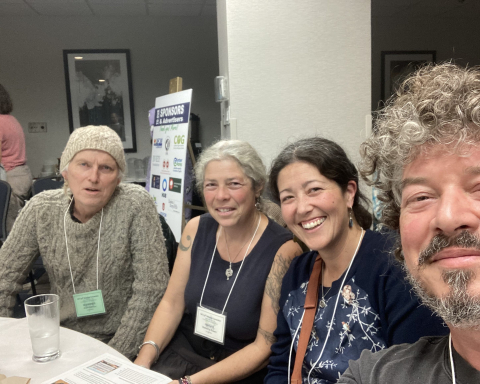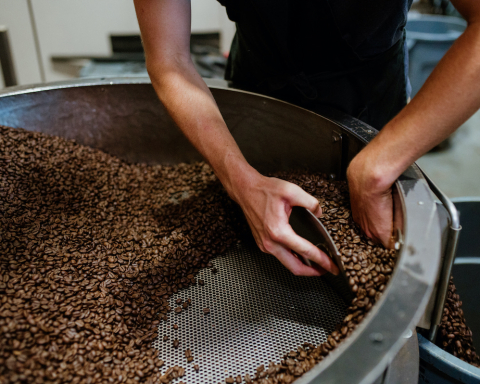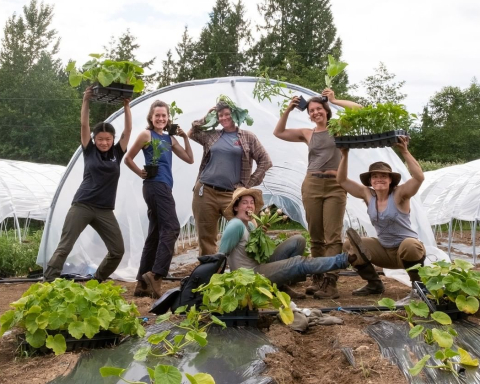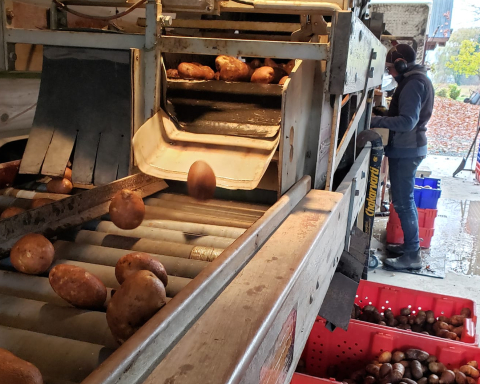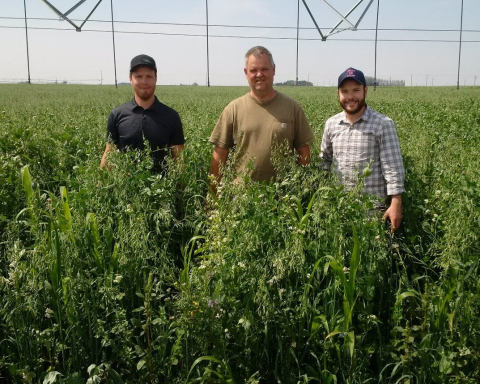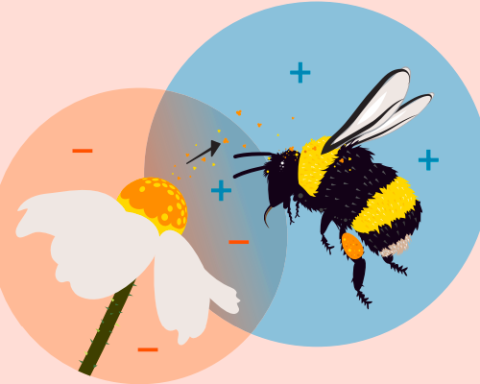Behind the Scenes of Input Approvals
Matt Sircely
This year marks 25 years since the birth of the Organic Materials Review Institute, commonly known as OMRI. Two and a half decades in the organic sector means many lessons learned and advice to keep in mind as organics looks forward to the next quarter century.
Bridging the Certification Gaps
Founding OMRI board member Emily Brown Rosen remembers “when there was no national program, and multiple systems of certification with no accreditation, we had to rely a lot on each other…to try and bridge the gaps and differences. It was all very grassroots, and sometimes the separate tunnel-vision of each group caused problems.”
Early certifier councils helped iron out regional differences and OMRI’s founders intentionally sought broad geographical representation. Brown Rosen served as Policy Director at Pennsylvania Certified Organic before working at the United States Department of Agriculture’s (USDA) National Organic Program (NOP). The lesson, she says, is “to continue building or participating in new alliances and consensus-building among the various sectors wherever possible.”
In her early 20’s at the time OMRI started, Kim Dietz supplied a handler’s perspective and support from Bill Knudsen’s juice company for preliminary discussions before OMRI’s founding. Review of materials for organic production was “disjointed” before federal regulation, says Dietz. “We brought the standards to the USDA and at the same time, this very active group of people saw that we could fill the gap with material review. I always say we started the National Organic Program with a skeleton and we slowly put the meat on the bones. And it was hard,” she says. “We all brought a strength to the table, and everybody was open to listening. Collectively we agreed on how OMRI should be founded, and the organic community the same way.”
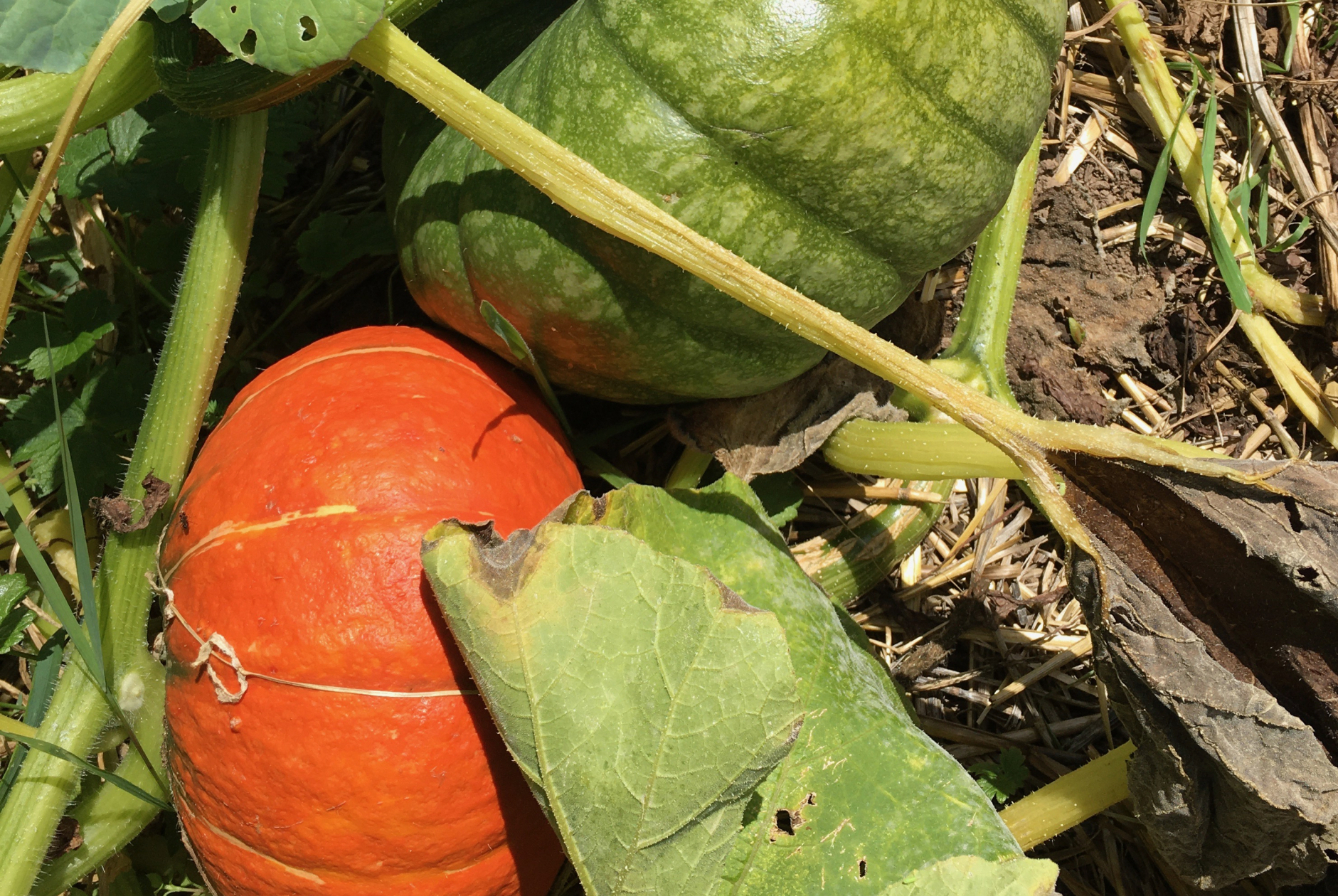
In the early days, Lynn Coody and the late Yvonne Frost from Oregon Tilth were already collaborating on materials lists with Brian Baker and Zea Sonnebend from California Certified Organic Farmers (CCOF). Coody explains that OMRI’s founders sought to standardize procedures for reviewing materials by “creating a national generic list, articulating criteria used to review materials, and documenting the steps in the materials review process.”
While not easy, she says, “there was a common understanding among the OMRI founders that we needed to come to solid agreements in order to support the evolution of the organic infrastructure, as well as a crucial trust in the goodwill, experience, and intelligence of our colleagues. I think some of these basic elements of cooperation are largely missing now, and that refocusing on them is the most important thing we can do to prepare for future challenges and opportunities.”
The first certifier councils introduced the West Coast founders to Bill Wolf, then board president of the Organic Foods Production Association of North America (OFPANA later became the Organic Trade Association, or OTA). OFPANA was developing its own organic input list, as was the Organic Crop Improvement Association in the Midwest, represented by the now late Peter Murray. Bill Wolf was elected as OMRI’s first board president, and Murray became vice president. Still farming in Virginia, Wolf says we are at a “critical juncture in the attempts to have harmony in the organic community, because the disharmony has become fractious enough so that there isn’t a good vehicle for having the different forces and belief systems within organic have a conversation. And in a way, OMRI served early on in that role, where everyone was at the table. OMRI could look to be a facilitator for some of that,” says Wolf. “So there’s an opportunity there, not to take a position necessarily, but to have a place for dialogue.”
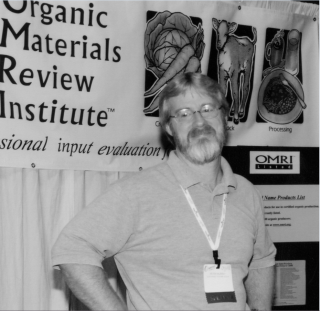
Trust and Unity
In classic startup style, Brian Baker drove with CCOF files in the bed of a pickup from California to Eugene, Oregon to open OMRI’s first office in Coody’s garage. “OMRI had to forego its advocacy role to build a reputation that it is fair, objective, and evidence-based in its evaluations. It was a price worth paying,” Baker says. “The development of organic standards was an inclusive, bottom-up approach that was open and transparent, so OMRI fit within that context. While not entirely based on consensus, the standards reflected broad agreement in many areas.”
Baker describes how the organic movement united in response to the USDA’s first proposed National Organic Program rule in 1997: “The organic community succeeded in meeting that threat head-on. It has not achieved that level of unity since.” Baker reflects that “ever since then, the organic community has been divided over standards issues, many of which are related to materials review.”
Dietz says OMRI should consider how to “step into the ring” to participate and even help facilitate. “The service that OMRI brings is these technical reviews. Very strong, scientific-based minds that can ground—can really bring people to understand a complex issue. If anybody can do it, OMRI can do it.”
Baker remembers OMRI’s initial work to convince organic product manufacturers of the value of sharing information with one trusted entity to gain broad acceptance among certifiers. Now, he sees a similar need for cooperation and information sharing: “Fertilizer and pesticide fraud pose a threat that cannot be ignored. OMRI can’t handle it alone. It will need to collaborate with other materials review organizations, regulatory agencies, and law enforcement. It is now clear that organic fraud is a persistent problem, not as isolated as once thought, and that we are dealing with international organized crime. International cooperation is needed to address a global problem.”
Dietz worked on an OTA task force to develop new anti-fraud tools. “We’ve opened ourselves up for vulnerability in those areas,” she says, noting higher organic prices intrinsically invite fraud. “So we have to protect the supply chain.” She hopes the movement worldwide sees the National Organic Program as “the foundation” for organic standards. “If a country makes their stance and says, ‘You’re not doing that in our country,’ then it could change the other rules, because you want everybody to try to be as harmonious as possible for trade.” OMRI can help, she says, “in those areas where there’s controversy and it’s not settled yet.”
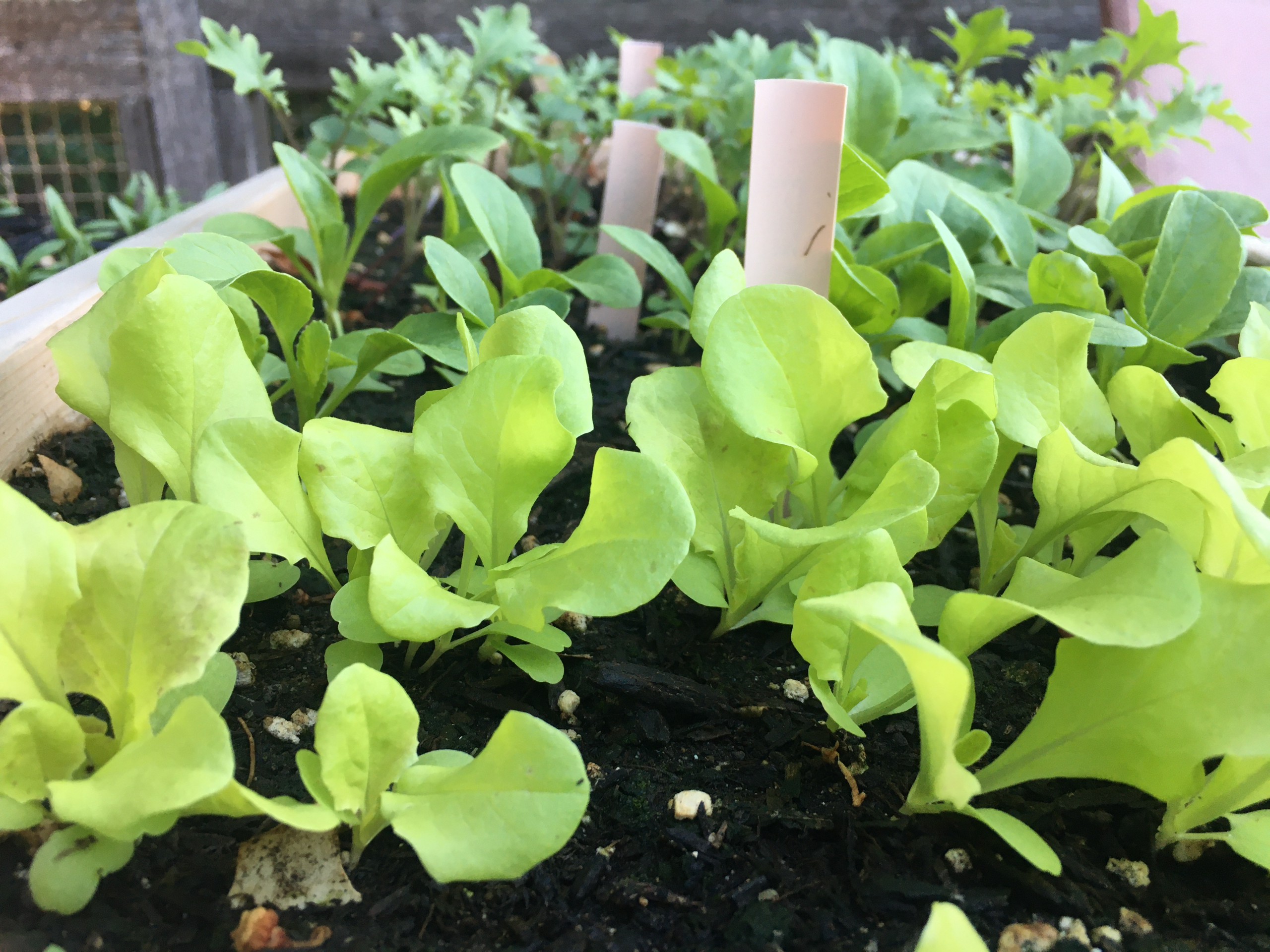
Building New Bridges
With an eye toward the future, Baker notes the “growing number of OMRI Listed® products that are made, sold, and used entirely within Mexico. It is not clear when or even if the USDA will reach an equivalency agreement with Mexico, or what issues will need to be addressed.” He says a renegotiation between the US and European Union (EU) is “nearly certain” before 2025. “Producers in developing countries would benefit from consistent standards in the US and EU, and many of these are inputs-related,” he says, adding: “I have long seen Canada and Australia as key to the harmonization of international organic standards.”
Towards this international harmonization, Brown Rosen advises to “keep abreast of new developments domestically and internationally. Look for partners and allies that can expand OMRI’s presence.” She notes OMRI could engage the advisory boards of state and federal regulatory agencies in the US and abroad. “It will help if OMRI becomes appreciated by more of the traditional ag regulatory groups, since organic is going more and more mainstream.” Brown Rosen cites “ongoing concerns” about fumigation issues at border crossings and “recent agreements between APHIS, US Customs, and NOP,” and wonders “if there is any role OMRI can provide with education, information, or research.”
Baker explains how OMRI historically hired and trusted talented people, adding that the Advisory Council and Review Panel helped attract expertise. The organic industry is currently experiencing a shortage of qualified people, and “materials review requires a specialized set of skills that requires training. It comes down to having a team of talented, dedicated people who know their stuff.” Baker suggests more technical outreach “to train extension agents and producers to understand the place of materials within an ecological systems approach. OMRI’s role in research and education are vital,” he says, to help producers “be more successful and better stewards of the land, water, and other natural resources.”
“Fundamentally, organic has become a much faster-moving industry than 25 years ago,” says Wolf. “So, capacity to move labels and decisions through the system is really critical.” Organic industry growth represents a “60-fold increase in a fairly short period of time, and to try to measure what that means, and what has to happen to change the paradigm, the fact is the system wasn’t designed to deal with the volume that exists today.”
The proposed standard for inert ingredients signals that many new operations will be brought into the sphere of organic verification, and oversight requirements will increase for some OMRI reviews. The industry now produces “mostly very complex products,” Wolf says. “Pet food, fish, aquatic standards” are among the issue areas that require inputs, along with understanding of those inputs. Streamlining systems is critical, he says, also suggesting flexibility around creating a “Miscellaneous” listing category to accommodate products outside standard listing categories. Hearkening to the naming of OMRI, Wolf stands by his original notion of including “Research.” OMRI could provide efficacy research with “comparisons, trials, and tests to verify that the inputs are exactly what they say they are.”
Coody suggests OMRI convene a think tank to approach challenges both “expansively” and “practically,” and including “organic elders to retain institutional knowledge.” In government-run organic programs, “the regulation of the organic inputs sector is in its early stages, and OMRI can offer extensive experience,” she says, specifically identifying “material review organization accreditation, improved auditing of materials review systems, and preventing and identifying fraud in the input sector. OMRI’s technical expertise is essential in ensuring that inputs are used not only in compliance with organic regulations, but in line with organic principles.”
Brown Rosen recommends more proactive consultation with certification agencies. “Perhaps a small committee of the materials experts from each member agency could meet periodically,” identify unsolved problems, and contribute insights on important issues to the OMRI advisory council. “In addition to certifier materials experts, it would be nice to get some university scientists with appropriate expertise.” If possible, “getting a NOP person on board the advisory council would be very helpful—I did it for a while when I was at NOP (as a non-voting member), so there is precedent.” She says it would help foster communication and offer “insight on potential problem areas coming down the road.”
For each step of organic evolution, “we have to keep the intention, and go back to those organic principles.” Dietz describes an increasing reliance on the private sector to act and lead in accordance with the organic principles. “For OMRI to be successful, for the trade to be successful, we have to continue to do what we think is right.”
Dietz cheers the founders living today: “Active! We’re still active. That was a long time ago, but we’re just as passionate as we were back then. There is no difference. We’re still fighting the good fight. It’s fun. It’s good. We believe in it.”
Matt Sircely has written for OMRI since 2006. Most at home in his garden on the Olympic Peninsula, Matt writes songs and performs and teaches mandolin. Over the years he has become a familiar face in the BC fiddle scene.
OMRI supports organic integrity by developing clear information and guidance about materials, so that producers know which products are appropriate for organic operations. OMRI is a non-profit that provides an independent review of products, such as fertilizers, pest controls, livestock health care products, and numerous other inputs that are intended for use in certified organic production and processing. OMRI also provides technical support and training for professionals in the organic industry.
Featured image credit: OMRI



